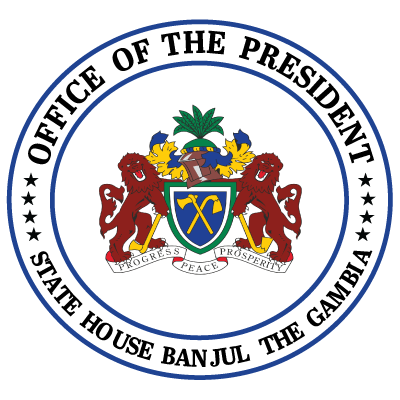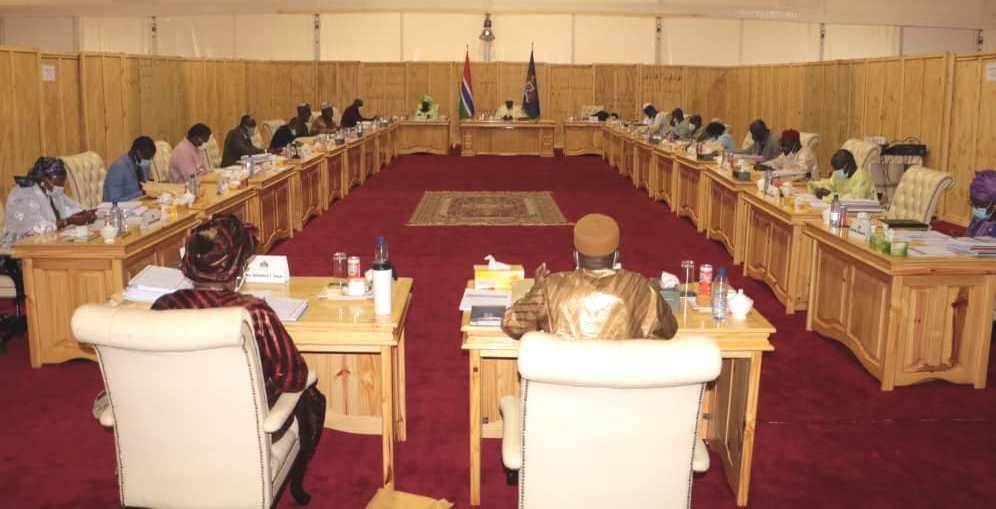These are the conclusions of the 7th Cabinet Meeting held on 22nd October 2020:
Cabinet following an exhaustive discussion, mandated the Attorney General and Minister of Justice to proceed and initiate a dialogue among all stakeholders with the view to reaching a consensus over the draft constitution.
Cabinet was also briefed by the Hon Minister of Women, Children and Social Welfare on the current reforms and restructuring at the Ministry. The reforms are part of efforts to promote the rights and welfare of women, children and all other vulnerable groups and to mainstream gender and children concerns in all sectors of the government.
The reform process proposed the need for transformation of the Women’s Bureau to a Directorate of Gender and Women Empowerment; Department of Social Welfare to a Directorate of Social Welfare; and Children Affairs to a Directorate of Children Affairs. A new Directorate of Policy Development, Strategic Planning, Monitoring and Reporting is also being proposed. Cabinet discussed and approved the proposed reforms by the Hon Minister of Women, Children and Social Welfare.
Cabinet also discussed and approved a paper presented by the Hon Minister of Finance and Economic Affairs on the Draft Public Private Partnership Bill which intends to strengthen the smooth implementation of PPPs in The Gambia through the following:
- Public Private Partnerships project identification, selection and prioritization procedures;
- Establishment and management of a Public Private Partnerships agreement;
- Local content and Gambian private sector participation in Public Private Partnerships projects;
- Functions and roles of the different stakeholders to name a few.
The Hon Ministers of Finance and Health presented a joint paper on the Draft National Health Insurance Scheme Bill which aims to help reduce the burden of out-of-pocket expenditure by patients and to protect households from high spending by devising prepayment mechanisms such as National Health Insurance Scheme. The Bill will establish a National Health Insurance Authority to implement a Health Insurance Scheme with a fund which will pay for the cost of health care services of the members of the scheme. In addition, provisions are made for a private health insurance scheme. However persons under age of five years, pensioners, categories of persons living with disability, persons with mental illness, persons above the age of 65, persons in need of antenatal delivery and postnatal health care services are exempted from payment of contributions under the National Health Insurance Scheme.
Cabinet also discussed and approved a paper by the Hon Minister of Finance on the promotion and reciprocal protection of investment agreement between the governments of The Gambia and the United Arab Emirates. Promotion and Reciprocal Protection of investment is a critical framework necessary in modern day investment environment especially for attracting investments from Gulf States such as UAE. This agreement provides an investment working framework for the protection of investment between contracting states.
The Minister of Finance also presented a paper on the avoidance of double taxation and prevention of fiscal evasion agreement between the governments of The Gambia and the United Arab Emirates on taxes of income and capital. Double taxation is a tax principle referring to income taxes paid twice on the same source of income. The avoidance of double taxation will enhance investment climate, which in turn can help in the growth of investment flows between the governments of The Gambia and the United Arab Emirates.
The Vice President presented an Information paper on the outcome of the 2019 Staff Audit Exercise by the Personnel Management Office (PMO). The 2019 staff audit exercise was a follow-up to the 2017 staff audit. In both audits, government has been saved from paying substantial amounts of money to absentee staff as salaries. Cabinet was informed that a number of measures are being taken to making the heads of department accountable for their payroll. PMO is also working with the Accountant General’s Department to transfer the management of the government payroll to PMO in line with international best practices. In addition, appropriate actions are being taken including invoking Regulation 57 of the Public Service Commission to dismiss unidentified staff in the civil service as well as other necessary actions to address the anomalies with a view to minimizing their reoccurrence in future.
The Vice President also presented a second paper on the proposed restructuring of the secretarial cadre of the civil service. This activity aims to address the level of redundancy associated with the secretarial cadre. This proposal is one of many steps and initiatives to be undertaken in order to effectively and efficiently utilize existing human resource capacities in the civil service. To facilitate this, recruitment at lower levels will be frozen and staff with the secretarial cadre will be encouraged and granted scholarships in a bid to train and reskill them for possible redesignation to other cadres.
Cabinet was informed through a joint paper presented by the Hon Minister of Higher Education, Research and Technology and the Attorney General and Minister of Justice that the 2016 Higher Education and Tertiary Education Act empowers the Minister of Higher Education, in consultation with the National Quality Assurance Agency to establish any public, tertiary and higher education institutions including universities and colleges anywhere in the country and change names of institutions. Accordingly, on the mandate of the Act and with approval of Cabinet, the Minister of Higher Education will establish the University of Science, Engineering and Technology (USET) and also The Gambia Institute of Public Administration (GIPAM) to a degree awarding institution.
The Hon Minister of Youth and Sports presented an Information Paper on the outcome of the countrywide familiarization tour in February 2020. The purpose of the tour was for the Ministry to have a first hand view of the facilities supporting youth and sports issues as well as dialogue with stakeholders in the youth and sports fraternity. Following the tour, the Ministry of Youth and Sports is now recommending improvements of relevant infrastructure relating to you and sports development throughout the country; improve training and skills transfer of technical knowledge to increase youth employability as well as to build relevant capacity at all levels in sports and youth entities; ensure proper documentation of all sports and related youth facilities and finally provide support for funding of projects, programs and related activities outlined to be derived from the sports levy.
The Minister of Information and Communication Infrastructure a Cabinet Paper on the proposal to declare The Gambia Submarine Cable Zone a Protected Zone. The main objectives of the Cabinet Paper are to provide enhanced security and protection for submarine cables that lie within the limits of the protection zone by prohibiting and or restricting all activities likely to cause damage to the cable within the zone; ensure that future cable owners would co-locate their cables in the existing protected zones; treat international cables in Gambia’s territorial waters as critical infrastructure that deserve strong protection to complement international cable laws, international treaties and international maritime norms and finally to empower relevant institutions such as The Gambia Navy and The Gambia Maritime Administration to oversee, monitor and enforce compliance to the regulations for the cable protection zone.
Cabinet also discussed and approved the Vetting Agency Bill 2020 presented by the Attorney General and Minister of justice. The Bill seeks to implement Security Vetting in The Gambia as an important part of the government’s reform of the security sector which will play a critical role in restoring trust and integrity across the security sector; vet individuals acting within the security sector and government officials with access to sensitive information in order to build institutions of high integrity that are accountable and transparent to the people of The Gambia; unify the approach to security vetting in The Gambia with the establishment of an independent government body in the form of an Agency to administer, perform and control the process of security vetting in The Gambia and issuance and depository of security clearances; and increase both external and internal trust in individuals granted access to sensitive government information and mitigate risks associated with such access. Cabinet was informed that the Vetting Agency Bill is in conformity with the constitution and human rights principles.
By Honourable Ebrima Sillah
Minister of Information and Communication Infrastructure

